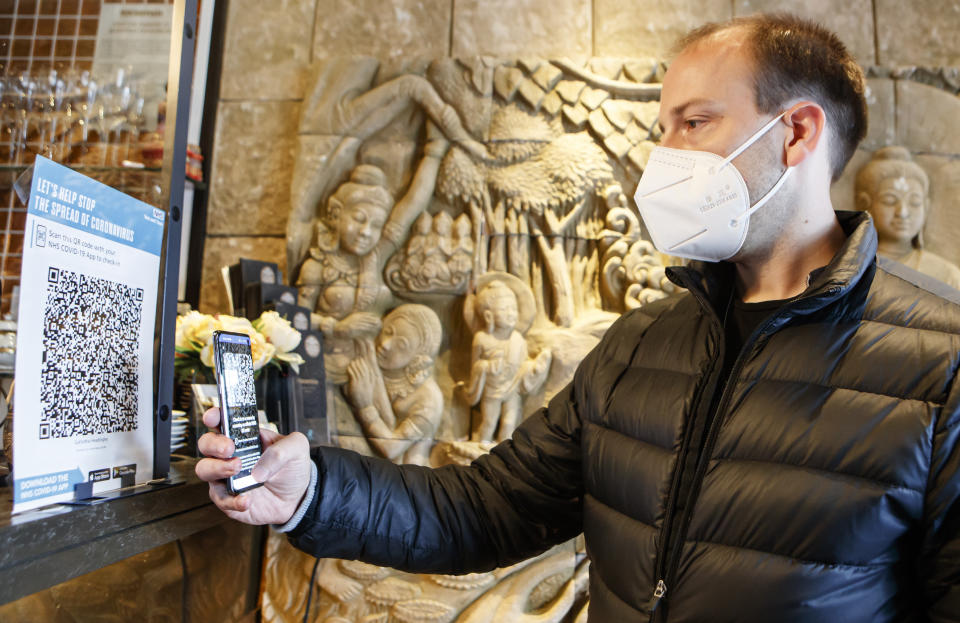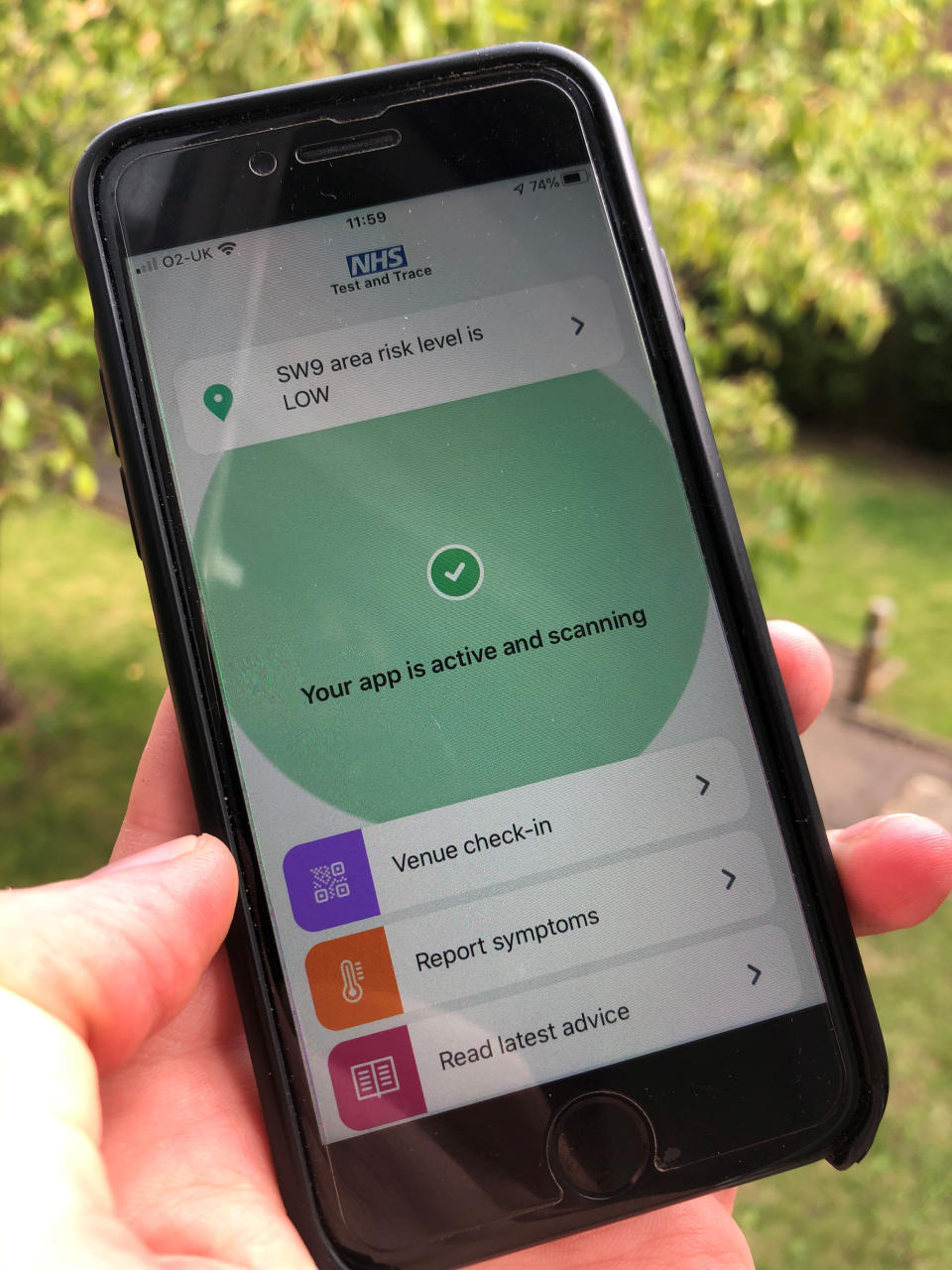Coronavirus: Ignoring self-isolation request from NHS app is not illegal, Matt Hancock confirms

It will not be illegal to ignore the NHS app telling you to self-isolate, Matt Hancock confirmed today.
Speaking on Times Radio the health secretary said it was not mandatory to enter self-isolation if the app told you to, but it is if an NHS test and trace member of staff tells you to.
On Monday it will be illegal in England to not enter self-isolation after being told to do so by a staff member of NHS test and trace, with the threat of a £10,000 fine.
Hancock said: “If the app tells you to self isolate then you should self isolate, if an NHS test and trace contact tracer tells you to then you must by law.”
Watch: How does the Covid-19 tracing app work?
The app was launched on Thursday after months of delay and questions about its effectiveness in the face of mixed results from other countries that have already deployed such apps.
Hancock said it was possible you could be told to self isolate multiple times by the app and recommended people should if that was the case, but added it was very unlikely.
Read more: Coronavirus cases nearly double in a week to 6,634

When asked about how many people had downloaded the app he said it was “over 10,000 already” at around 9am.
He also said if you get a test after being told to self isolate you still have to self isolate even if the result is negative.
“Because of the biology of the virus a test of the virus won’t release you from the need to self isolate because you could still be incubating the virus,” Hancock said.
He noted the vast majority of people already self-isolated before it was made mandatory by law.
However, a study today suggested only 11% of people committed to the full 14 days of self-isolation after being told to by a member of NHS track and trace.
He also said if you have already had coronavirus and you get told to self-isolate then you must do.
Hancock said this was because of the evidence some people can catch it twice.
Justifying why it took so long for the app to launch Hancock told the BBC’s Today programme: “I’m not prepared to launch something that I don’t think will be effective, that’s one of the reasons that I chose to wait until now to launch it.”
He said the app’s launch came at a “tipping point in our efforts to control the spread of this virus”.
“The more people who download this app, the more effective it will be,” he said.

Read more: UK government unveils 'Winter Economy Plan' to protect jobs and firms
The new app requires Apple users to be running iOS 13.5, which was rolled out in May and works on the iPhone 6s, released in 2015, or newer handsets, while Android users need to be running at least Android version 6.0, which was also first released in 2015.
The Government said that anyone unable to use the app should continue to use traditional contact tracing services provided by NHS Test and Trace or, NHS Wales Test, Trace, Protect.
The app is powered by an Apple and Google-developed system, using Bluetooth to keep an anonymous log of people a user has been close to.
It does this by exchanging randomised keys while the Bluetooth signal strength measures proximity.
The government has struggled to keep its test and trace system working, with massive backlogs in the numbers of tests that need processing causing chaos.
Figures released today found Just 1.8% of people in England who used a home test kit for COVID-19 received their result within 24 hours in the week to September 16.
Read more: Over 100,000 people a day got coronavirus in the UK at peak of pandemic in April
This is a drop from 1.9% the previous week and the lowest percentage since Test and Trace was launched at the end of May.
Some 11.3% of people received the result of a home test within 48 hours, up from 9.3% during the week ending September 9.
Some 28.2% of people who were tested for COVID-19 in England in the week ending September 16 at a regional site received their result within 24 hours.
This is down from 33.3% in the previous week and 66.5% in the week ending September 2.
The figures also showed the median distance to testing sites for COVID-19 tests booked at regional locations has increased to 9.0 miles and to 7.7 miles for mobile testing units in the week ending September 16.
Watch: Can the coronavirus affect the brain?

 Yahoo Finance
Yahoo Finance 